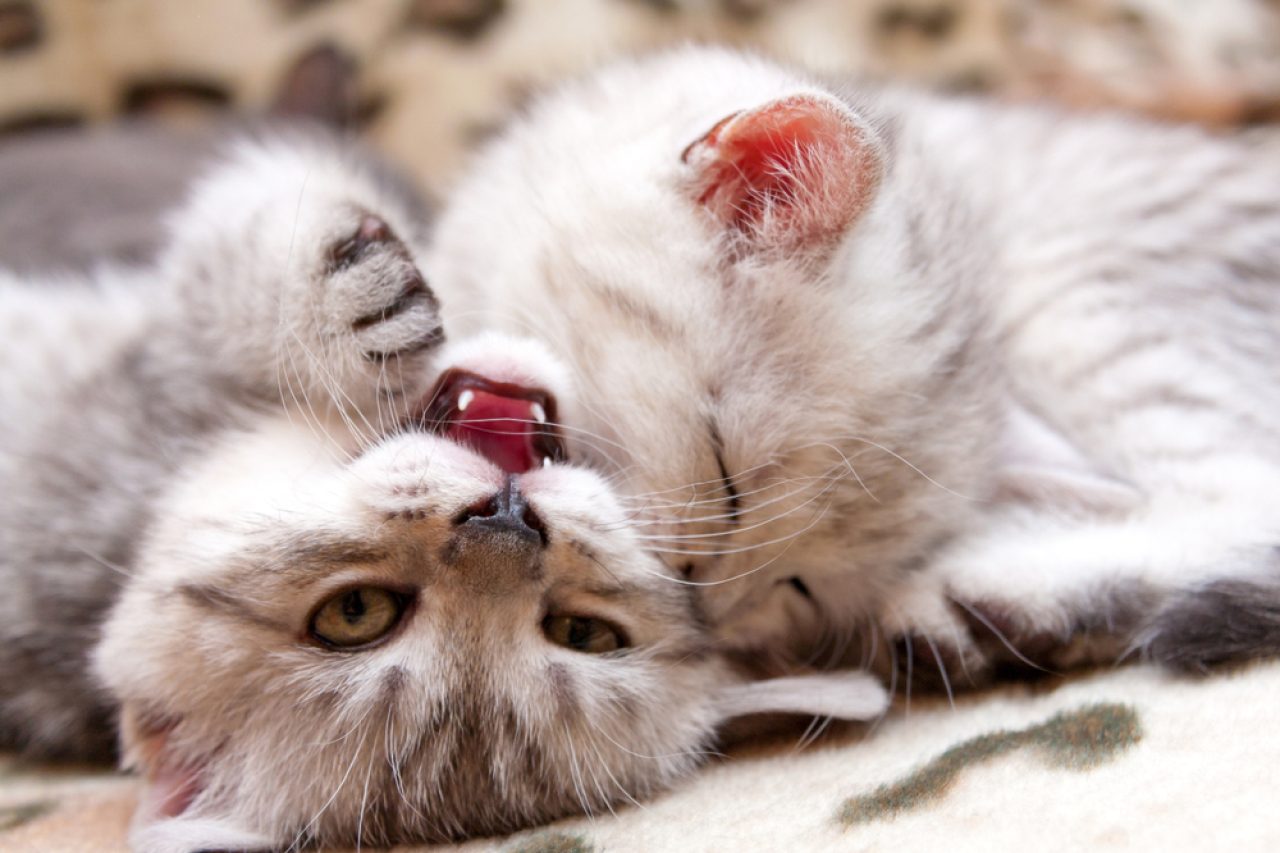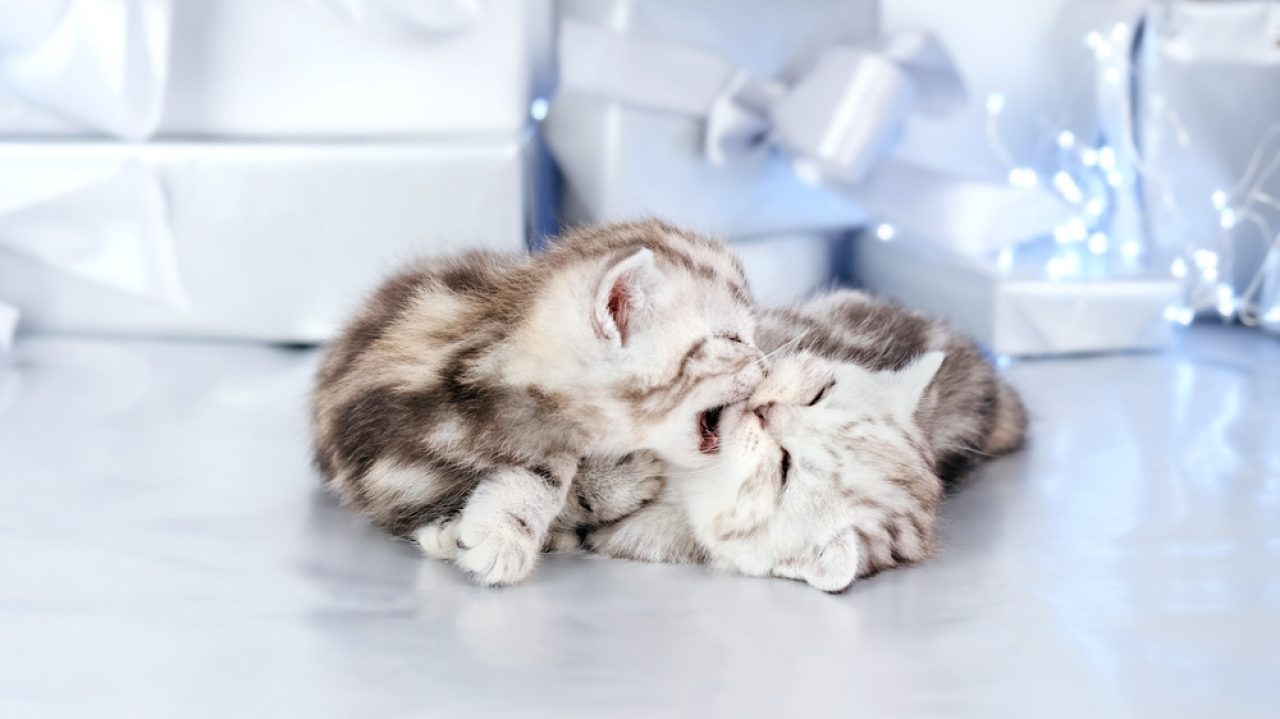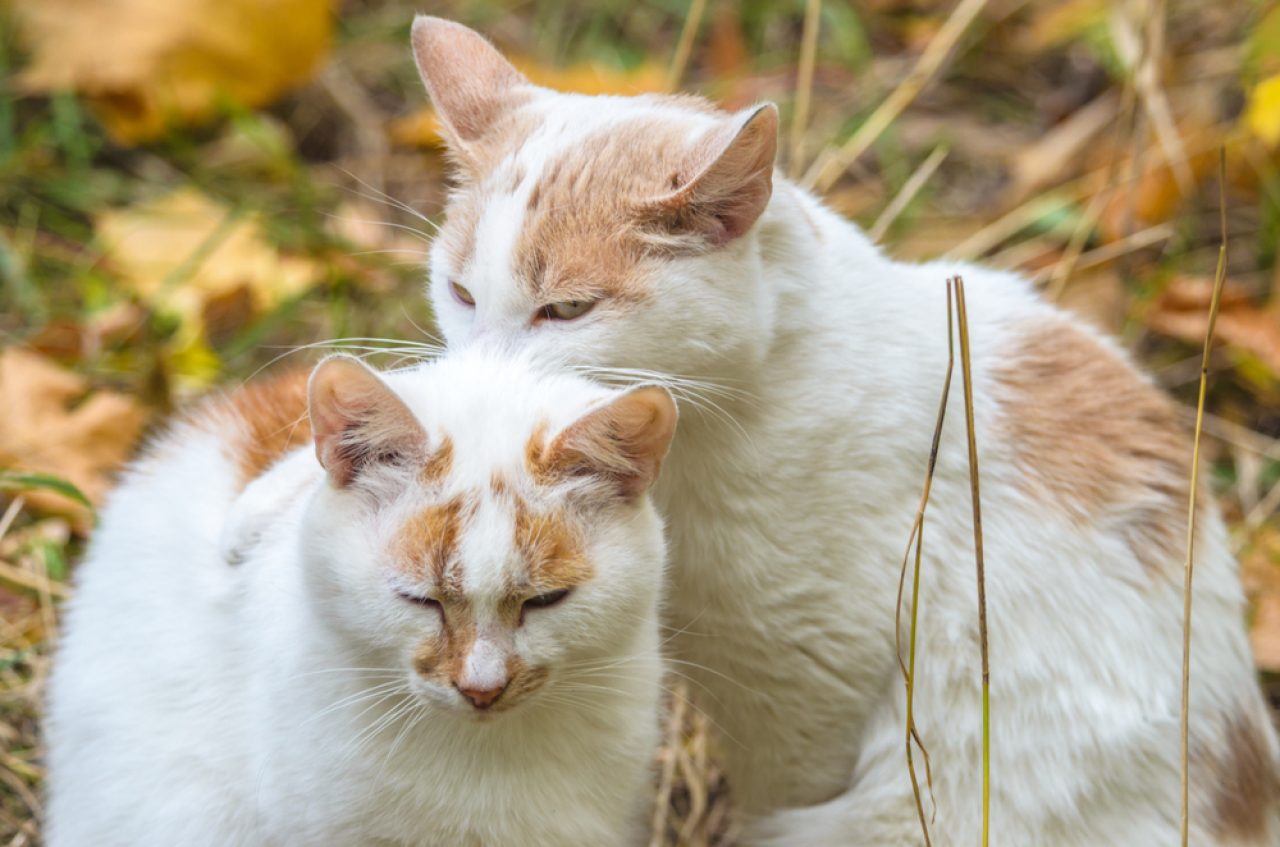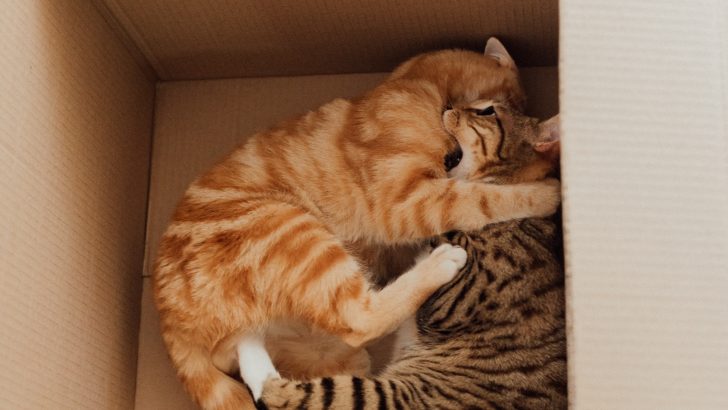After weeks of rain and cold weather, we finally got one beautiful sunny day. Of course, it meant taking my cat out. There’s nothing she loves more than exploring our garden. She even found friends! But only a few minutes after I saw them together, I had to ask myself, “Why is my cat biting other cats’ necks?”
It was not the first time I saw this, but it was the first time I decided to find answers. I needed to know if my fluffy roommate was just being a playful little kitty, or if she was actually a criminal in the cat world. That way, I would know how to deal with her behavior the right way.
I didn’t want that to ruin our day, as I saw all the other cats were doing fine. So I waited until we got home to call the vet. I wanted him to explain everything he knows so I could finally understand my kitty’s mind at least a bit better. And he did an amazing job, so I want to share my knowledge with you.
Since you’re here, I’m pretty sure you’re wondering about the same thing. Well, it’s your lucky day because I have so much to tell you! Let’s take a look at the answers together. Have fun!
Why is my cat biting other cats’ necks: 7 possible reasons

Before we start, I need to give you a little introduction. Every action always has multiple possible reasons behind it. We, as humans, know that better than anyone else. But cats are the same too! There’s almost never a single answer to a question concerning their behavior.
There are various answers to why your kitto is biting other cats’ necks. But don’t worry, I prepared all of them for you. Are you ready to finally take a little peek inside your fluffball’s mind? I bet you are! So let’s get into it already.
1) She’s showing who’s the boss
If there’s a new cat in your household or even in the neighborhood, your kitty might want to show dominance. It’s mostly because of territory, as cats really hate sharing anything, from food to their favorite spots around the house.
And what better way to establish dominance than to bite another cat’s neck? Well, we know there are better ways, but our kitties seem to prefer this one. As long as they’re not really hurting each other and it’s more like a warning from one cat to another, you don’t need to react to this behavior.
2) It’s because of her hunting instincts
Did you know that the neck is one of the most vulnerable areas of any animal? Well, your little feline is one of the best hunters in the world and she’s well aware of that. Just like every predator, a cat will bite another cat’s neck if he or she feels there’s a need to do so.
When cats are older, they know how to control their instincts. But when they’re still young and learning about hunting, they want to try everything. That’s why you might see a kitten get carried away when playing because it’s their predator instincts kicking in.
3) Your kitty is just playing

Stalking, pouncing, biting, clawing, jumping, and chasing are just some of the moves you’re likely to see if you have cats. We all know that there’s nothing that felines like more than sleeping, eating, and playing. So they’ll never miss a chance to do any of these activities.
Playing like this is even good for them because it teaches them essential skills, such as hunting, communicating better, and defending themselves. Most of the time, when you see a cat biting another cat’s neck, it’s because they are both just two little playful fluffballs.
4) It’s time for mating
When it’s mating time, the female cat will make loud noises and she’ll probably even try to attack the male cat or at least escape. To stop that from happening, the tomcat might bite her neck to keep her in one place and ensure his safety until everything’s over.
The interesting thing is that even spayed and neutered cats can take a mating stance too. And it can even happen with cats of the same gender, other animals, and believe it or not, their favorite toys. It’s most likely because they want to exert their dominance as they enjoy being the center of attention.
5) They’re fighting over resources
If you noticed that your cat is biting another cat, it might be because they’re fighting over their possessions. Or they want to steal something from each other. It’s mostly about their toys, food, and even attention.
Sometimes you’ll even see hissing, yowling, and preparing for a fight just because she wants to keep her litterbox safe. Cats are territorial animals and will do everything to protect the things and places they think belong to them.
6) It’s typical grooming behavior

This can be true in two different situations. If the cat who’s being groomed is the one biting, that’s because she might be overstimulated. Our kitty also tends to bite us if we pet her for a long time. So if your cat feels like she’s had enough, she’ll just bite the other cat’s neck to make sure he or she stops.
And the other situation is the opposite – where the one who is doing the grooming is the one biting too. That might be because of their memories where their mothers gently bit them while grooming them because they were constantly moving when they needed to stay still.
7) Medical reasons
The only time you should worry about your cat biting another cat’s neck is if it happens too often and you feel that your kitty has become more aggressive as a whole lately.
A sudden behavioral change should be an alarm signal to make you contact your vet, as it could happen because of a medical problem you haven’t yet discovered.
The most common medical conditions that can cause aggression are hormonal imbalances, cognitive problems, and hypothyroidism. And all of these require help from professionals.
How to know if your cats are fighting or playing?
It can be difficult to figure out whether your cats are playing or fighting. No matter the case, they will always hiss, chase, and bite each other. That’s why it can be tricky to draw conclusions about what’s actually going on.
However, there are still a few differences that can be helpful. You’ll just need to pay close attention to the cats to notice them. If they are indeed fighting, they will likely push their ears back and puff their tails. One more thing they often do is raise the fur on their backs so they appear bigger and stronger.
If they are just in a playful mood, you’ll notice they actually take turns in attacking. And almost happily await an attack. It’s even a beneficial game for them because they learn how to fight and defend themselves better. So if they’re not hurting each other, let them be.
How to stop aggressive biting?

If you’re worried about your cat biting her friend’s neck, then there are actually some steps you can take to make sure she behaves less aggressively. Most of the time, these tactics do the trick, but if not, it’s best to contact an animal behaviorist.
– Stop rewarding her. If you’ve spent a day together and you spotted her biting another cat’s neck, then refrain from giving her any rewards that day.
Even if she does something that blows your mind afterward, don’t do it. Why? Because it’s likely she’ll think it’s because of the biting and she’ll be motivated to do it again.
– But don’t punish her either. It might work with kids, but punishments never work with cats. It will, instead, make a situation much more complicated. How? Either your kitty will become afraid of you and she’ll start avoiding you, or she’ll do it even more often just because she’s mad at you.
– Use the distraction method. When you see she’s preparing to show any kind of aggressive behavior, show her her favorite toy and invite her to play. Her focus will likely shift to that toy immediately, and she won’t become a little cat criminal!
– And finally, make sure that everyone living with you knows the rules. It’s important that all of you react to your cat’s aggressive behavior the same way. That’s how she won’t be able to look for a weaker person in the family, and she’ll need to follow those rules all the time.
Final thoughts
And we’ve reached the end of this interesting journey around your fluffball’s mind. I hope you had fun and most importantly, I hope you got the answer to “Why is my cat biting other cats’ necks?”
As cat owners, we have to deal with worries and new questions on a daily basis, so I’m sure I’ll talk to you again. Until then, wrap yourself in a warm blanket and cuddle with your fluffball, especially if the rainy days are bothering you too. Bye!

